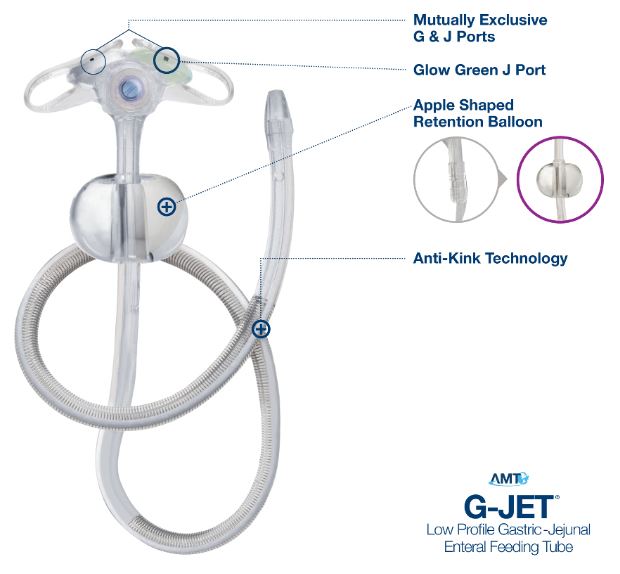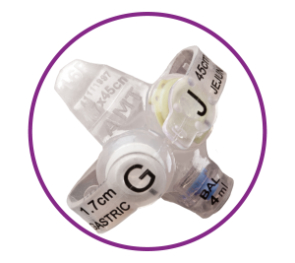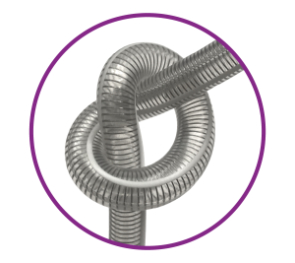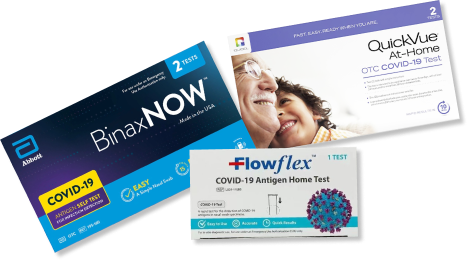-
Catheters (6,800+)
- Angiocatheters (50+)
- Closed System Catheters (300+)
- External Catheters (620+)
- Hydrophilic Catheters (140+)
- IV Catheters (1,200+)
- Non-Hydrophilic (20+)
- Plastic Catheters (200+)
- Rubber Catheters (700+)
- Silicone Catheters (770+)
- Ureteral Catheters (100+)
- Urethral Catheters (450+)
- Venous Catheters (240+)
-
Coronavirus (20,000+)
- Bacterial Filters (170+)
- Bleach (360+)
- Coveralls (500+)
- Disinfectant Wipes (350+)
- Face Shields (200+)
- Gloves (8,000+)
- Gowns (2,300+)
- Isopropyl Alcohol (170+)
- IV Therapy (2,000+)
- Masks (3,700+)
- Pulse Oximeters (250+)
- Sanitizer (670+)
- Scrubs (20,000+)
- Soap (1,500+)
- Stethoscopes (700+)
- Thermometers (950+)
- Custom Kits
- Dental (14,000+)
- Gloves (8,000+)
-
Gynecology & Urology (1,000+)
- Bed Side Drainage Bags (350+)
- Circumcision (150+)
- Cord Clamps and Clippers (60+)
- Disposable Vaginal Specula (60+)
- Enema Bags (30+)
- External Catheters (620+)
- Foley Catheters and Trays (1,200+)
- Identification (1100+)
- Leg Bag Accessories (10+)
- Leg Bags (280+)
- Reusable Vaginal Specula (900+)
- Specimen Collection (200+)
- Tubing & Connectors (17,000+)
- Urinals / Bed Pans (1,300+)
- Urine Collectors (60+)
- Urological Irrigation Products (10+)
- Vaginal Specula Illumination (2+)
- Systems (11,000+)
- Hygiene (1,000+)
- Incontinence (1,000+)
-
Infection Control (2,500+)
- Bacterial Filters (170+)
- Bleach (360+)
- Coveralls (500+)
- Disinfectant Wipes (350+)
- Face Shields (200+)
- Gloves (8,000+)
- Gowns (2,300+)
- Iodine (460+)
- Isopropyl Alcohol (170+)
- IV Therapy (2,000+)
- Masks (3,700+)
- Pulse Oximeters (250+)
- Sanitizer (670+)
- Soap (1,500+)
- Stethoscopes (700+)
- Thermometers (950+)
- Infusion All (2,000+)
- IV Bags - Empty (300+)
- IV Bags - Filled (100+)
- Masks (3,800+)
-
Medical Apparel (23,000+)
- Arm Sleeves (240+)
- Beard Covers (20+)
- Bouffant Caps (200+)
- Compression Socks (80+)
- Coveralls (500+)
- Disposables (100+)
- Isolation Gowns (360+)
- Lab Coats (2,200+)
- Lab Jackets (300+)
- Patient Gowns (300+)
- Procedural Gowns (230+)
- Scrubs (20,000+)
- Shoe Covers (270+)
- Surgeon Caps (40+)
- Surgical Gowns (70+)
- Surgical Hoods (20+)
- Surgical Masks (330+)
- Ostomy (400+)
-
PPE (20,000+)
- Bacterial Filters (170+)
- Bleach (360+)
- Coveralls (500+)
- Disinfectant Wipes (350+)
- Face Shields (200+)
- Gloves (8,000+)
- Gowns (2,300+)
- Isopropyl Alcohol (170+)
- IV Therapy (2,000+)
- Masks (3,700+)
- Pulse Oximeters (250+)
- Sanitizer (670+)
- Scrubs (23,000+)
- Soap (1,500+)
- Stethoscopes (700+)
- Thermometers (950+)
- Respiratory (500+)
- Sanitizer (600+)
- Surgical Supplies (14,000+)
- Sutures (7,500+)
- Syringes & Needles (14,000+)
-
Wound Care (5,000+)
- ABD Pads (100+)
- Adhesive Bandages (650+)
- Advanced Wound Care (400+)
- Applicators (6,700+)
- Burn care (240+)
- Dressings (7,500+)
- Elastic Bandages (1,600+)
- Gauze (3,300+)
- Ice / Heat Packs (280+)
- Medical Tape (820+)
- Non-Adhering Dressings (100+)
- Ointment & Solutions (450+)
- Self-Adherent Wraps (200+)
- Sponges (2,400+)
- Staple & Suture Removal (1,500+)
- Tegaderm (450+)
- Transparent Dressing (800+)
- Wound Care Prep (120+)
- Wound Cleansers (100+)
- Sales & Deals (100+)
- 3M (4,200+)
- Alaris Medical (600+)
- Amsino International (550+)
- Avanos Medical (40+)
- B Braun (1,500+)
- Baxter (750+)
- BD (2,800+)
- BSN Medical (2,000+)
- Cables & Sensors (3,200+)
- C.R. Bard (4,200+)
- Cardinal Health (6,800+)
- CareFusion (2,100+)
- ConMed (1,500+)
- Cook Medical (600+)
- Covidien (9,500+)
- DeRoyal (6,000+)
- Dukal (1,300+)
- Ethicon (4,100+)
- GE Healthcare (1,000+)
- Hartmann (600+)
- Hospira (530+)
- ICU Medical (1,700+)
- Masimo (170+)
- Medline (54,000+)
- Midmark (2,500+)
- Roche (300+)
- Smiths Medical (4,000+)
- Sunset Healthcare (450+)
- TrueCare Biomedix (20+)
- View All Brands (5,000+)

Applied Medical Technology GJ-1860-45-I - 18F G-JET Button Low Profile Gastric-Jejunal Enteral Feeding Tube - ENFit Compatible, Stoma 6.0cm, Jejunal 45cm, Each

Introduction to Tube Feeding
Proper nutrition is essential to maintaining our bodies health, growth and ability to heal. Various medical conditions may make it difficult or impossible for a person to eat, and thus deny the body of essential nutrients. In such cases, a gastrostomy tube (G-tube) is inserted to provide direct access to the stomach for feeding. A G-tube is a convenient, comfortable and effective means for delivering nutritional formulas to the body. These nutritional formulas are either commercially available or homemade using a food processor. A healthcare provider will prescribe the proper feeding procedure, formula and amount of water to most effectively feed each patient.
AMT G-JET Balloon Button
G-JET Button is used when you cannot ingest food through your mouth, or are unable to get the proper amount of nutrients to meet your needs. The G-JET Button delivers a liquid food (called formula) directly into the small intestine by bypassing your mouth, esophagus, and stomach. Once the formula enters your body through the G-JET Button, digestion works the same as when food begins in your mouth. You get the same nutrients delivered to your body through a G-JET Button as you would get by mouth.
 |  |
Tube feeding with the G-JET Button provides you with a complete and healthy diet so growth and development can continue. It will take time to adjust to tube feeding at home, but with the help of your healthcare provider, some practice, and this patient education guide, you will gain confidence to take care of your G-JET Button.
AMT G-JET Button Anatomy

Enhanced Features
|  |  |
Anti-Kink TechnologySpring reinforcement maintains superior flow. Cleared for MRI, device is MR Conditional. | Easier Nighttime ConnectionsJejunal port and jejunal connector Glow-in-the-Dark | Reduced Risk of MisconnectionsClearly labeled with distinctive shapes & exclusive ports |
G-JET Benefits
Reduced Clogging
The G-JET Buttons unique internal tube geometry addresses clogging with a whole new profile. Unlike other G-J buttons, our tube transforms from a tri-lumen design in its proximal (gastric) segment to a single large lumen in its distal (jejunal) segment.
Durability
to the leading competitor balloon. The AMT G-JET has the same balloon as the MiniONE.
Reduced Risk of Misconnections
Clearly Labeled Device
|
Mutually-Exclusive Ports*
|
Please Note: that due to mutual exclusivity, it is extremely important to ensure you always have a stock of both the gastric (white) extension sets and jejunal (glow green) feed sets available.
AMT's ENFit Options Offer:
Forwards and Backwards Compatibility - Wide variety of ENFit Transition Adapters!
- You can connect Current Market to ENFit
- You can connect ENFit to Current Market
- Glow Green Technology!
- Winged Adapters for Dexterity!
- Hybrid Feed Set Options!
- To accommodate Blenderized Diets and Venting!
Frequently Asked Questions
Question: Leakage around the device
- Make sure the balloon is filled with the prescribed amount of water (resistance should be felt when gently pulling on the tube.) NOTE: The recommended fill volume is printed on top of the fill valve. If you have questions contact your healthcare provider.
- Check that the G-J tube corresponds to the prescribed French size and length. If the incorrect device is in place, call your doctor.
- The G-J tube may be too tight or too loose. Call your doctor to have the stoma remeasured.
- For new placements, it may take time for the stoma tract to naturally heal, firm up around the tube, and conform to the balloon. If leaking persists contact your healthcare provider.
- With each placement, the stoma length should be measured with the AMT Stoma Measuring Device.
- Causes for Leakage:
- Incorrect size
- Weight change
- Amount of water in balloon may be too much or too little
- Tension at stoma site
- Stomach may need to be decompressed
A balloon may leak or deflate over time due to medications, balloon inflation volume, stomach acid, G-tube care, or natural wear. ALWAYS have a spare G-tube, like the AMTs MiniONE Balloon Button, to place in the stoma tract that is similar in size to your G-JET device. This will aid in keeping the stoma tract from closing. Once a temporary replacement device is in place call your doctor. Do NOT remove G-J tube until a replacement is available in order to prevent the stoma from closing.
Balloon Will Not Deflate:
Clean the balloon port with a cotton swab to make sure formula/medication or other contaminants are not blocking the balloon port. Insert a slip tip syringe, push and twist one-quarter turn.
Qestion: Feeding Set Becomes Disconnected
Stop the feeding pump and estimate the amount of formula lost. Wipe tube connections thoroughly with soap and water. Clean the inside of the feed set and the device feeding port with a clean cotton swab and soap and water. Dry connectors and reconnect tubes. Resume feeding, adding additional formula for the estimated loss.
Question: Preventing Tube Blockage/Clogging
- Flush the G-J tube with 5ml (10-20ml for adults) of warm water before and after administering food or medication or every 6 hours for continuous feeding. DO NOT place foreign objects down the center of either port on the G-J tube.
- DO NOT mix medications with formula while feeding. Always administer medications one at a time and thoroughly clean the extension set. Try to obtain your medications in liquid form when possible. If only available in tablet form ask your pharmacist if it is safe to crush the tablet into a fine powder and mix with warm water.
Question: G-J Tube Is Too Tight Against the Patients Skin
The G-J tube should be able to move slightly from side to side easily without resistance from the patients skin. If the G-J tube does not move easily or redness/bleeding occurs at the stoma site or the area directly underneath the G-J tube, call your doctor. The patient may need to be remeasured for a longer G-J tube.
With each placement, the stoma length should be measured with the AMT Stoma Measuring Device.
Question: G-J Tube Is Pulled Out of the Patient
Although the G-J tube is designed to decrease the number of pull outs, a G-J tube may become accidentally dislodged. ALWAYS have a spare G-tube, like the AMT's MiniONE Balloon Button, to place in the stoma tract that is similar in size to your G-JET device. This will aid in keeping the stoma tract from closing. Once a temporary replacement device is in place call your doctor.
What is ENFit
The International Organization for Standardization (ISO) has created a new standard design for enteral connectors, termed the "ENFit Connector."
These new ENFit Connectors are intended to improve patient safety and to decrease the risk of medical device misconnections. This new connector has been designed to be incompatible with Luer adapters, which are commonly used in IV applications. The ENFit connector will look & secure very similar to a Luer threaded lock system, although the design is larger and thus, incompatible with Luers.
Why ENFit?
ENFit is a patient safety initiative, designed to ensure that feeding tube connectors are incompatible with the connectors for unrelated delivery systems such as trach tubes, IV lines, and catheters. Misconnections involving such medical devices may be relatively rare compared with the number of patients needing tubes or IVs, but such misconnections can have deadly consequences when they do occur.
ENFit is a global initiative that affects end users, manufacturers, and suppliers. The ENFit Connectors were developed as part of the Stay Connected initiative under the supervision of clinicians, manufacturers, and regulators.

What is AMTs Role?
AMT will be in compliance with the enteral connector requirements of ISO 80369-3, better known as ENFit, established by the governing bodies to manage the changeover. During the interim period, AMT has made enteral feeding transition adapters available to smooth the transition while continuing to protect patients.
What Does this Mean for You?
What is changing is how you connect your food source to the feed set, which in turn connects to an enteral feeding device. The straight or right angle connectors, which attach and lock into low-profile feeding devices, will remain the same. The distal end of feed sets, which connect directly into the device, are not regulated at this time. However, the proximal side of the feed set, your bolus or y-port adapters, will begin to incorporate the ENFit design into newly created product lines.

Applied Medical Technology #GJ-1460-45-I, 14F G-JET Button Low Profile Gastric-Jejunal Enteral Feeding Tube - ENFit Compatible, Stoma 6.0cm, Jejunal 45cm, Each
$733.13 EACH

Applied Medical Technology #GJ-1660-45-I, 16F G-JET Button Low Profile Gastric-Jejunal Enteral Feeding Tube - ENFit Compatible, Stoma 6.0cm, Jejunal 45cm, Each
$733.13 EACH

Applied Medical Technology #GJ-1815-45-I, 18F G-JET Button Low Profile Gastric-Jejunal Enteral Feeding Tube - ENFit Compatible, Stoma 1.5cm, Jejunal 45cm, Each
$733.13 EACH

Applied Medical Technology #GJ-1817-45-I, 18F G-JET Button Low Profile Gastric-Jejunal Enteral Feeding Tube - ENFit Compatible, Stoma 1.7cm, Jejunal 45cm, Each
$733.13 EACH




